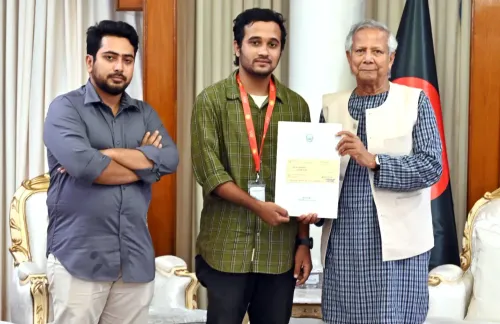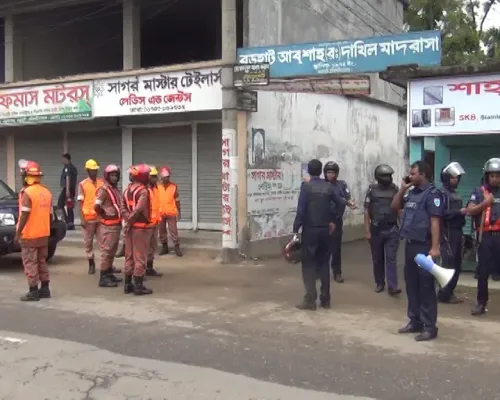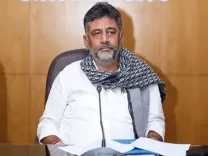Are Fuel Shortages and Hostilities Endangering Water Supplies in Gaza?

Synopsis
Key Takeaways
- Fuel blockade endangers water supplies in Gaza.
- Over 2 million Palestinians face critical water shortages.
- Children's health at risk due to rising malnutrition.
- Mental health support being provided to affected children.
- Urgent action needed from the international community.
United Nations, June 25 (NationPress) As alarming reports of ongoing gunfire targeting Gazans in need of assistance continue, UN humanitarian officials have issued a stark warning: if the fuel blockade on Gaza persists, more lives, including those of children, will be lost.
The UN Office for the Coordination of Humanitarian Affairs (OCHA) reported that casualties continue to mount in the Gaza conflict, with individuals coming under fire near non-UN militarized aid distribution points or on designated routes for UN relief trucks, as reported by Xinhua.
“Israeli authorities must facilitate the delivery of fuel in sufficient amounts into Gaza, particularly to the northern regions,” OCHA emphasized. “The cessation of these life-saving operations will inevitably lead to more fatalities.”
According to the UN Children's Fund (UNICEF), “If the ongoing blockade on fuel to Gaza, now exceeding 100 days, is not lifted, children will start dying from thirst.”
Fuel is critical for the production, treatment, and distribution of water to over 2 million Palestinians in Gaza.
UNICEF also indicated that the number of children admitted for acute malnutrition treatment surged nearly 50% in May compared to April, highlighting the urgent demand for domestic water as the systems for its production falter.
OCHA mentioned that fuel stored in Rafah is being utilized to sustain essential services in the southern region, providing temporary relief. However, without the influx of additional fuel into Gaza, these vital services could soon cease. A successful mission to secure fuel from Rafah was accomplished on Monday.
Concerns for the mental well-being of children in Gaza were also raised by humanitarian officials.
“Caregivers report that children are experiencing increasing psychological stress,” OCHA noted. “This is exacerbated by worsening conditions, including food scarcity. Last week, in various displacement centers across Gaza City, Deir al-Balah, and Khan Younis, the UN and its partners offered over 1,000 children sessions to help them cope with their fears and emotional challenges.”
The office also stated that more than 2,000 caregivers received mental health support services.
The World Health Organization (WHO) reported on the mental health crisis in Gaza: “The WHO has trained hundreds of frontline humanitarian workers in psychological first-aid techniques to support the population and foster a sense of safety.”
OCHA announced another displacement order from the Israeli military affecting three neighborhoods in Jabalya in the northern part of Gaza. Approximately 30,000 people are estimated to be affected in those areas, with most of Gaza still under similar displacement orders.
“With no shelter supplies permitted into the strip and many existing shelters needing urgent repairs, partners in Khan Younis are innovating by recycling wooden pallets from food shipments to rehabilitate temporary sites,” OCHA reported. “Like fuel, shelter materials have been banned for over 16 weeks, while hundreds of thousands have been newly displaced.”
The office indicated that the United Nations and its partners have tried to coordinate 14 humanitarian movements within Gaza. However, six were outright denied, including the transport of fuel and water, as well as the recovery of bodies and damaged trucks. Humanitarian efforts have managed to conduct health and nutrition initiatives and eliminate solid waste.









